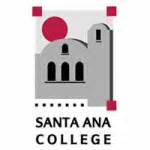Course Syllabus
 Office Procedures Syllabus
Office Procedures Syllabus
Course Description:
Develop skills for the automated office including interpersonal relations, administrative support, office communication, and work management. Provides instruction in adapting to the changing office environment, including problem solving and team atmosphere.
Textbook Information:
Procedures & Theory for Administrative Professionals
Stulz, Karen M., Kellie A. Shumack, and Patsy J. Fulton-Calkins, 7th ed. Cincinnati: Cengage Learning, 2013. ISBN-13: 9781111575861
Remember to check online and used bookstores. I found the text book for about $35 online and rentals were averaging $15.
FREE online book materials are available.
This FREE site has the following:
- Chapter Outlines
- Flashcards - to study vocab - works on your phones too!
- Glossary - with definitions
- Web Links
Additional Course Information:
In addition to the skills you will build, this course meets requirements for the following certificates and degrees:
- Office Management
- General Business Applications & Technology
- Digital Publishing
- Microsoft Office Professional
Course Learning Objectives:
- Increase knowledge of the workplace environment.
- Identify the personal qualities, skills, and technical knowledge required in the successful pursuit and fulfillment of the administrative professional role.
- Continue to develop soft skills; e.g., human relations, communication, critical thinking, personal management, and continual learning.
Student Learning Objectives:
- Listening & Speaking - Students will listen/read actively to analyze the substance of others' comments.
- Reading & Writing - Students will read effectively and analytically and will comprehend at the college level.
- Thinking & Reasoning - Students will identify and analyze real or potential "problems" and develop, evaluate, and test possible solutions using creative and critical thinking, analysis and synthesis, quantitative reasoning, and/or transfer of knowledge and skills to a new context as appropriate.
- Information Management - Students will do research that is necessary to achieve personal, professional, and educational success. They will use print material and technology to identify research needs, seek, access, evaluate, and apply information effectively and responsibly.
- Diversity - Students will develop individual responsibility, personal integrity, and respect for diverse peoples and cultures of the world.
- Civic Responsibility - Students will take personal responsibility for becoming informed, ethical and active citizens of their community, their nation, and their world.
- Life Skills & Careers - Students will develop the knowledge and skills necessary to select and develop careers.
Time Commitment:
-
One credit hour (spent in class) requires two hours spent outside of class.
-
So, for a one unit 16-week class, students should be allocating three hours a week.
-
For a 3 unit 16-week class, students should be allocating 9 hours a week for their class, time in class and student preparation time.
Meet Your Instructor: Theresa Hagelbarger
Contact:
General Course Questions - Use the General Discussion Board
Email: hagelbarger_theresa@sac.edu - Instructor will reply within 24 hours, Monday-Friday.
Office Hours:
- By appointment.
- Tutoring - Thursdays, 4:00-6:00 PM, Room A-106, Computer Lab
- ACC Academic Computing Center
- Office Location – SAC Campus – A-107-4
Netiquette
Complete description you can find on following link: Netiquette, simply defined, means etiquette on the Internet. In an online course, you will be speaking through writing both to fellow students and instructors. It is imperative to communicate well and professionally. The golden rule of netiquette in an online class or environment is, do not do or say online what you would not do or say offline.
Complete Course Syllabus - you will receive a printed copy the first night of class.
Course Summary:
| Date | Details | Due |
|---|---|---|